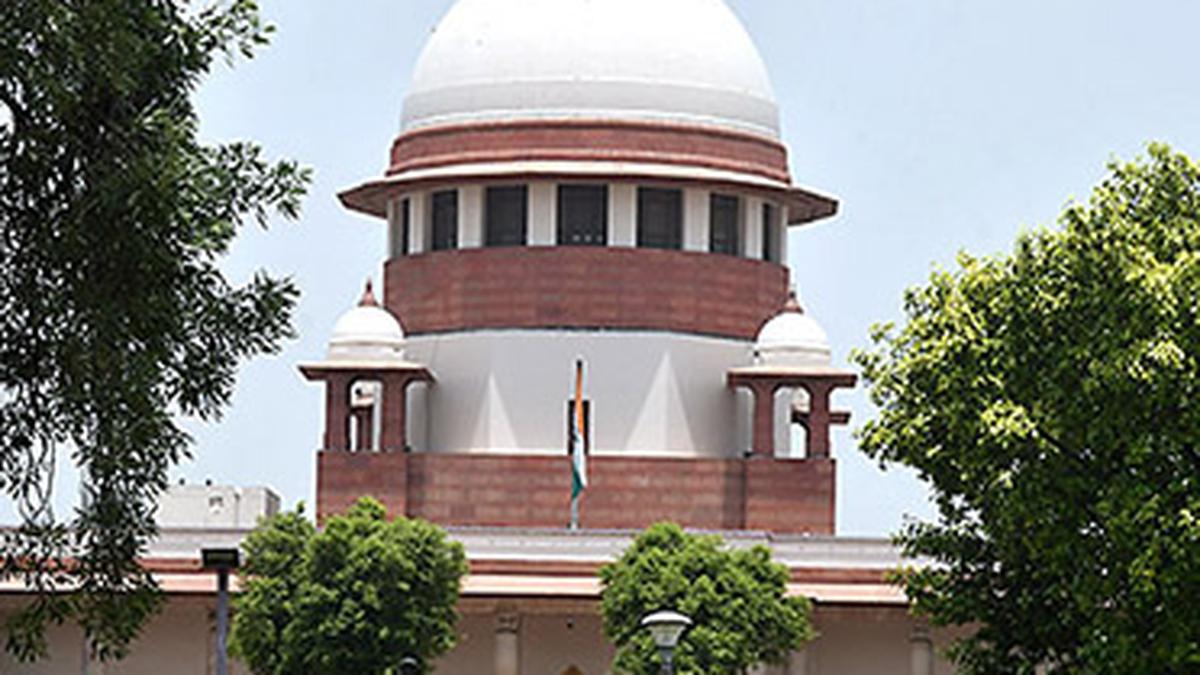
Appointing authority is also dismissing authority, said Supreme Court in M. Karunanidhi versus Union of India
The Hindu
The 1979 Supreme Court verdict, delivered by a 5-judge Bench led by the then CJI Y.V. Chandrachud, stated that “a Minister is appointed or dismissed by the Governor and is, therefore, subordinate to him whatever be the nature and status of his constitutional functions”.
While there are hardly any authoritative judicial pronouncements on the power of a Governor to dismiss a Minister, an obiter dictum (judges’ opinion on an issue not directly related to the case) in M. Karunanidhi versus Union of India decided on February 20, 1979 states that an appointing authority would also be the dismissing authority.
The 1979 case was filed related to the prosecution initiated against Karunanidhi for allegedly receiving pecuniary advantage of ₹4 lakh to ₹5 lakh in wheat purchase from Punjab when he was the Chief Minister between 1971 and 1976. He had approached the Supreme Court to get the prosecution quashed after having lost before the Madras High Court.
Also read: Tamil Nadu Governor R.N. Ravi backtracks on dismissal of Senthilbalaji from Cabinet
One of the two prime arguments raised by his counsel during the hearing of the appeal was that he could not be prosecuted under any Section of the Indian Penal Code or the Prevention of Corruption Act because being the Chief Minister of the State at the relevant time he was not a ‘public servant’ as defined in Section 21(12) of the IPC.
The argument was that by virtue of the position that the appellant enjoyed as Chief Minister, there was no relationship of master and servant between him and the government. He was only acting as a constitutional functionary and, therefore, could not be described as a ‘public servant’ as contemplated under Section 21(12) of the IPC.
A five-judge Bench, led by the then Chief Justice of India, Y.V. Chandrachud, P.N. Bhagwati, N.L. Untwalia, Syed Murtaza Fazal Ali and R.S. Pathak, did not concur with his submissions and dismissed the appeal. The judges held that the Chief Minister would incontrovertibly be a public servant since he/she receives salary from the government treasury.
While arriving at the conclusion, the judges wrote that there was no necessity to probe the differences between the powers conferred on the Governor under the Constitution and the Government of India Act “because the Constitution clearly lays down that the Governor appoints the Chief Minister and being the appointing authority he is also the dismissing authority”.

Senior BJP leader and former Telangana Governor Tamilisai Soundararajan on Saturday (November 23, 2024) said the landslide victory of the Mahayuti alliance in the Maharashtra Assembly election was historic, and that it reflected people’s mindset across the country. She added that the DMK would be unseated from power in the 2026 Assembly election in Tamil Nadu and that the BJP would be the reason for it.










